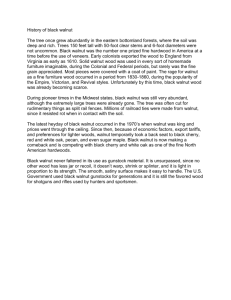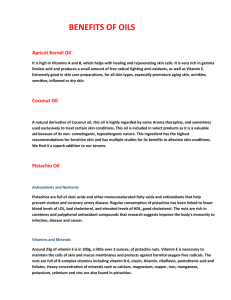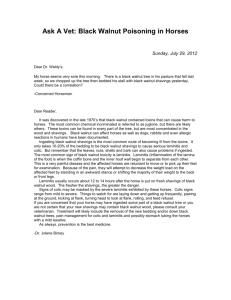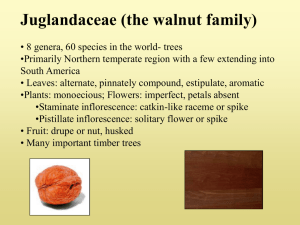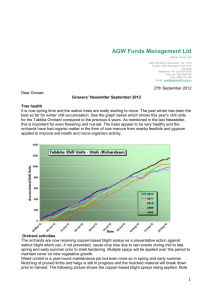Diófa (juglans regia)
advertisement
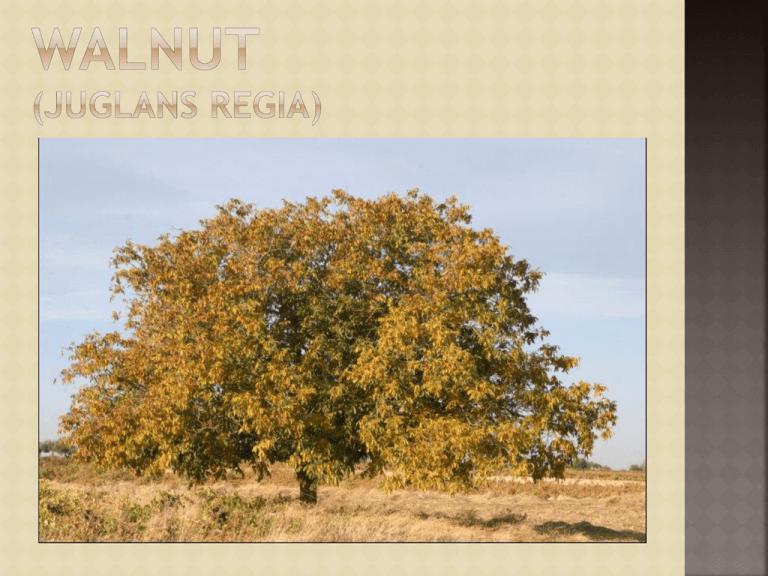
The common walnut (Juglans regia ) belongs to the family (Juglandaceae) genus (Juglans). It is middle sized or tall. Kingdom : plants (Plantae) Line : angiosperm Class: dicotyledonous (Magnoliopsida ) Order : beech-flower (Fagales ) Family : walnut /Juglandaceae/ Genus : walnut /Juglans/ The walnut tree is native in China , in Central Asia and in Central Europe. These days it is grown in the United Sates, in Turkey , in China and in Italy. At present there 9 genera with 50 species. For example Black walnut /Juglans nigra/ Its crop is similar to the common walnut. It is edible and delicate but its kernel is smaller, its shell is much harder. Because of this, it is grown mainly for its wood. Japanese walnut /Juglans ailantifolia/ In Japan it is grown for its kernel. „Heart” walnut /Juglans ailantifolia var. cordiformis/ It is the hybrydation of the Japanese walnut. Pecan walnut /Carya illinoinensis/ Hickory /Carya ovata/ oThe walnut tree has three kinds of bud: •cone-shaped bud •oval sprout •like the grooved pine-cone catkin The walnut tree blooms in April and May. Its catkin inflorescence group in one or in pair, it is cylinder-like. The leaves of the walnut tree in the first phase are red later they turn green. The grown leaves are wing like, its lenght is 20-50 cms. The old walnut tree grows short shoots, it does not grow too much. It tries to fill the avaiable space. It can live for a long time, its height remains the same. When it is young its bark is smooth, when it is older its bark is cracked vertically. The bark of a young walnut tree When it is 35 years old When it is 66 years old The roots of the walnut tree consists of thickened, turnip shaped taproots and thin redicles. The taproot goes down quite deep and branches out. Gnomic leaf and fruit blotch It starts an early defoliation, it happens especially in the second part of the summer period. 3-4 mm sized brown round or oval blotches appeare on the leaves. Fruiting body appears on the leaves. They appeare on the buds too. Bacterial Dark diseases brown , black batches As they rotten, they stick to the shell. The kernel and shell turn black , they shrink and become useless. Felt gall The pest is in the bud during winter. In spring it spreads on the leaves. It has 3-4 generations. The symptons are visible. There are swelling on the leaves, on the backside there are felt, brownish blatches. Wart gall The leaves become gnarled, 1-2 mm swellings appeare . There are plenty of them on a leaf. Sometimes it can spread onto the fruit. In this case the crop will decrease. Purifies blood, intensifies digestive tracks. It is used internally in folk therapy for gastritis and intestinal catarrh and blood purifier. They use it externally for pack, for imflammation or against sweating on the foot or hand. In hard times the leaves were used for making cigars and tobacco. Liqueur is made from it. Its wood is hard. It is very precious for the wood carvers and carpenters. Tattoo In Tunisia they make henna black with the bark of the walnut tree.
